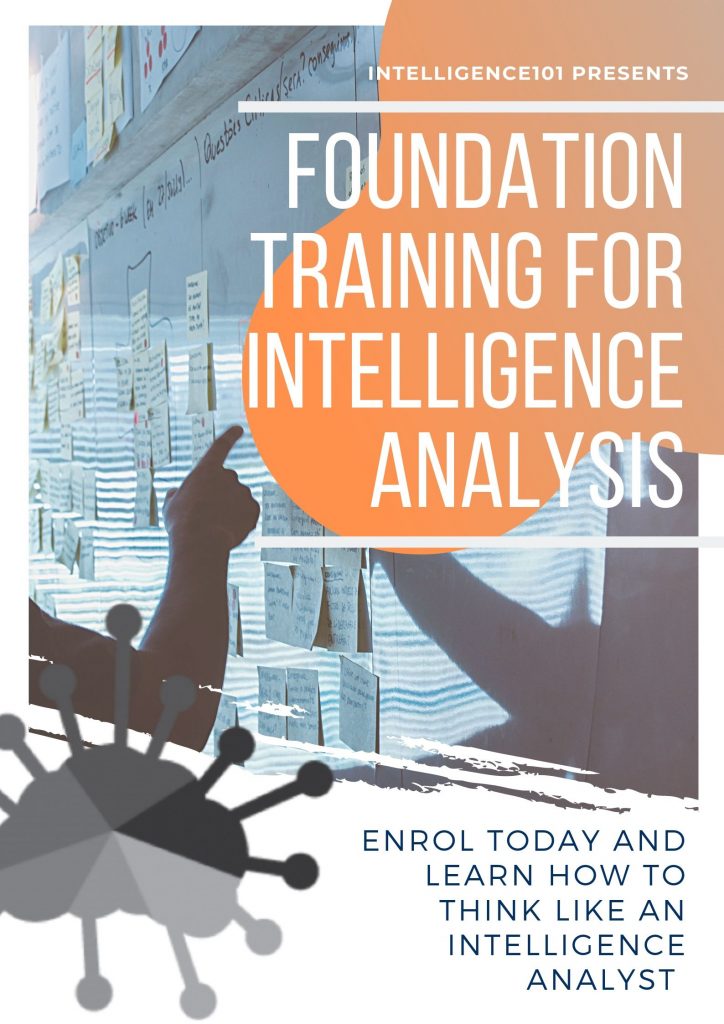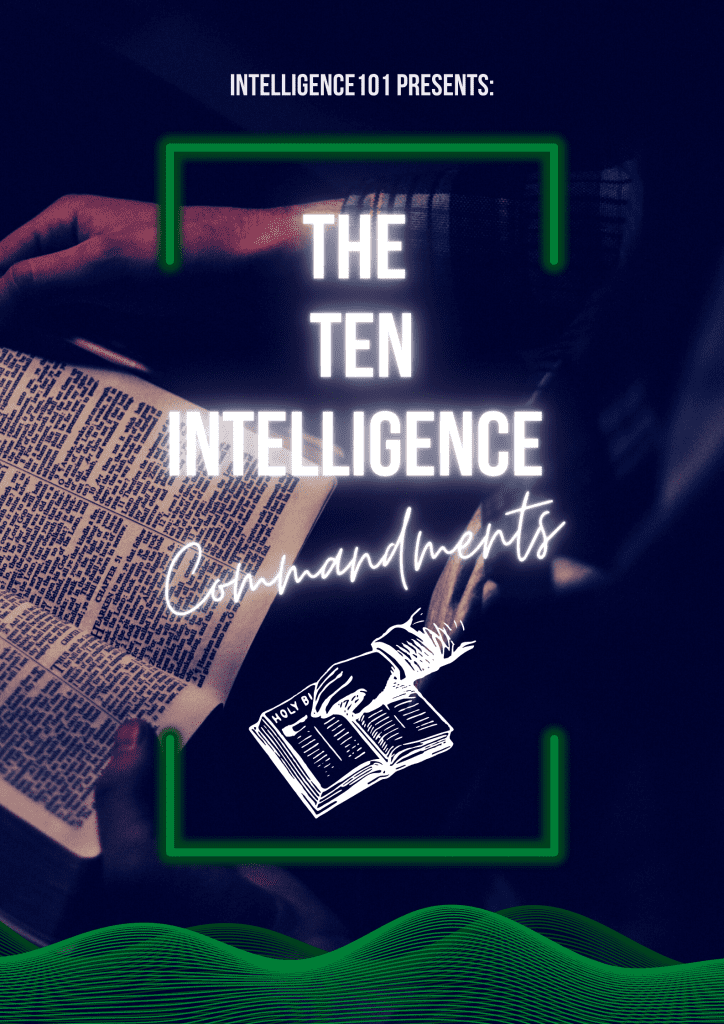I once had a boss who was a real hard-arse…
You know, the type that would constantly ride you, pick apart your work and send it back if you accidentally misspelled something.
As it turned out. He was probably the most influential professional I’ve met. His attention to detail was impeccable, and he loved his job.
I remember he told me one time – “If you’re going to be any good, then you’re going to need to master these three things. You need to be able to Write, Brief and Analyse.”
So this article will share that lesson, and provide you with some tips to improve the skills every Intelligence analyst must master!
Intelligence Writing
Here are my tips for intelligence analysts to become better writers:
Use a style guide
Most universities, government departments, and large organisations will have their own ‘style guide’. Style guides are usually free and widely available to help ensure consistency and standards when preparing and delivering information in the written format.
Use your style guide to develop templates with the required formatting, font, margins, and borders as appropriate, this not only saves time but ensures your products look consistent and use the same terms and language.
Have your work checked for formatting and spelling issues
Using those around you, such as your peers or your chain of command to proof your work is an easy way to see if there are any glaring mistakes you may have overlooked and to determine if your writing can be understood logically.
I like to have my peers to read my written work such as briefs and emails before I release them for wider dissemination. Quite often my peers will pick up on small errors I’ve easily overlooked.
This is a simple, but very effective way of ensuring your written product is to a high standard and ‘makes sense’ when it’s sent.
Print the report out and wait five minutes before proof reading it
One of the most effective ways to proof your own work and identify small, but sometimes glaring mistakes is to print your work off and read it on paper. For me, I tend to find I can quickly and easily identify mistakes better on paper.
Write Less
Keep it simple, stick to the facts and cut out unnecessary words.
Intelligence Briefing
Here are my tips for intelligence analysts to become better speakers and improve Intelligence Briefing:
Public speaking skills improve with practice
Use language you know and understand, practice pronouncing difficult words and locations and get your presentation skills reviewed.
Always allow time to practice your presentation completely in front of someone.
Know your content
Confidence comes from knowing your content and being able to recall and use the information you have on hand rather than trying to read large amounts of information. Take the time to research the issues and understand what you’re presenting so you will confident to stand up and tell people about it.
Using visual cues
Try to avoid large amounts of text and ‘wordy presentation slides’. Some of the best presentations have very little if any words on the screen but rather convey the message or information through a picture or map.
Present information logically and chronologically
We all understand things when they’re presented in order and sequence. This allows us to build a picture and digest information ‘as it occurs’. Present your findings and information logically and in sequence to allow greater understanding of the audience.
Explain your collection, analysis, and assessment
When offering an assessment it’s a good idea to offer the information collected, and how this was analysed to determine the assessments you arrived at. Simply delivering a conclusion is likely to have people asking questions about how that recommendation came to be.
Justify your recommendations and stick by your assessment
If you make an assessment based on your own understanding and analysis, ensure you stick to your assessment when pressured for greater justification.
Take your time.
Remember, Slow is smooth, smooth is fast. Don’t try to talk too quickly or feel pressured to say more than is needed to be said.
Intelligence Analysis
Tips for intelligence analysts to think better:
Ask questions
Asking questions is the best way to find out information. Always ask why? Or So What? Or What Does This Mean For Me? To gain a better understanding of the information or how it applies to the topic at hand.
Know more
Researching and understanding the issue you’re analysing to the greatest detail will allow you become a ‘subject matter expert’ and provide you with an understanding of the detail to the point that you have better insight than others and are able to make well-informed assessments.
Corporate Knowledge
Whether it’s people who’ve been there before or others with experience, drawing on the ‘corporate knowledge’ of others is a great way to get a better understanding of the issues at hand and to gain deeper levels of insight from people with relevant experience.
Is more information available?
Have you tapped all available resources? Is there information somewhere you haven’t looked? Who else might know or have the information you seek? Knowing where to go to get this information is paramount to effective intelligence analysis.
So what about you? Have you got any lessons the share? Ever had a boss who was a real jerk, but turned out to leave you with some professional pearls of wisdom? If so we’d love to hear them?
If you’ve got any TIPS or comments to improve our community of Intelligence Professionals please comment below!
– Adios Intel Amigos
From Information to Intelligence
Would you like to:
- Develop a comprehensive knowledge of the Intelligence Cycle and the Foundations of Intelligence Analysis?
- Learn how to make Intelligence collection plans and write Intelligence Briefs?
- Understand Intelligence Collection methods including HUMINT, SIGINT, IMINT, GEOINT, and OSINT?
- Compile Strategic Analysis and deliver Oral Briefings?
- Apply your Intelligence training to different roles and environments including Law Enforcement, Military, Counter-terrorism?
- Develop your critical thinking and learnt to use various analytical methods?
- Understand the impact of Intelligence in multi-disciplinary roles?
- Then join us in our interactive Intelligence Training Course today.






